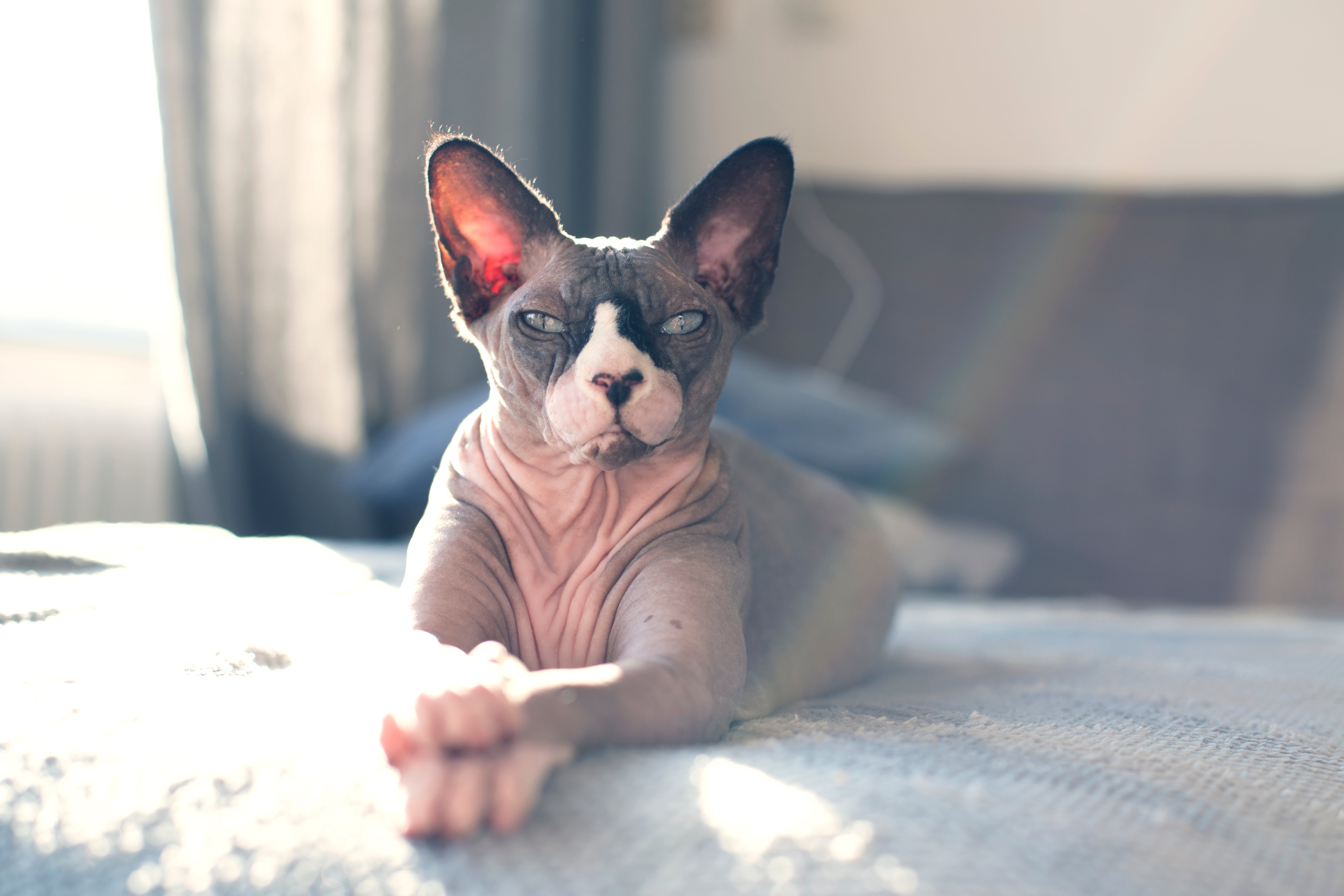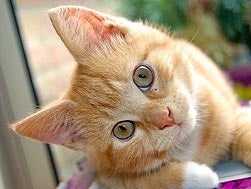Breed characteristics carousel
Learn More
Need to Know
- Benefits from an experienced owner
- Needs a high level of enrichment including simulated hunting games and interactive play
- Highly active and inquisitive cat
- Sociable and dependent cat
- Very talkative cat
- Lean and elegant cat
- Requires regular
- Indoor cat
- Not ideal for family homes
- Can be regularly left alone for a few hours
- Needs a calm environment

Personality
Lively, alert, and downright naughty sometimes, the Sphynx Cat can perform aerialist feats. They’re devoted to their families and love following humans around, although sometimes it’s for the sole purpose of being nosy. They are curious and love to demand attention, akin to a small toddler. (They don’t like to compete with human toddlers for attention.) Despite looking otherworldly, they are still cats, charming and mysterious to a fault.
The Sphynx is not the first domestic cat to go hairless—they’ve been seen in paintings as far back as the Aztec period. A genetic mutation is responsible for this breed, first discovered in 1966 when a hairless kitten was born to shorthair domestic cats in Ontario, Canada.
Patience isn’t just a virtue— it’s the basis of a relationship with a Sphynx. They are clever and funny cats and will try to break your patience where they can, such as by stealing items from you or knocking them onto the ground. A good sense of humor will carry a Sphynx owner far.
The Sphynx Cat needs mental stimulation and a lot of it, giving your needy ex a run for their money. The more games, puzzles, and tricks you play with them, the more likely they are to leave you in peace.
Athletic, active, strong—the Sphynx sounds like it would love the outdoors, but it is definitely an indoor breed. They don’t have protective fur coats and will thrive in warm spots in the home much more than any outdoor playtime. A cat patio is a good medium ground for any Sphynx Cats that are itching to explore the world outdoors but can’t fully get there.
The Sphynx’s unusually sparse fur and skin need a regular bath, so it’s important to introduce them to the bathing and grooming process as soon as possible. They need their ears cleaned regularly, so it would behoove an owner to turn that into a bonding moment rather than a battle by conditioning them to like it as soon as possible. They’re often described as suitable for those with allergies, but this is only true for those who are allergic to cat hair, not dander and saliva.
Unlike the independent reputation many cats get, Sphynx Cats love nothing more than being with their owners. They’re engaging and love human interaction, so plenty of toys, food dispensing puzzles, and cat trees should be in your online shopping cart. They are mischievous and will partake in classic cat behavior like pushing things off counters or sitting on your computer. They love to be amused and in turn, will be amusing—and eventually exhausted enough to leave you alone. They are trainable with positive reinforcement.
It can be a rollercoaster ride with a Sphynx as they can be extreme and attention-seeking. They don’t do well with young children who might take away any bit of attention they need. Families with no children or older children who have plenty of access to warm spots on the couch or bed are best.
The cost of a Sphynx cat from a breeder is significantly more than the cost of adopting one from a local shelter or rescue. The adoption fee usually covers additional items such as spaying or neutering, vaccines, and microchipping.

Learn more about feeding and caring for your Sphynx on Purina.
Did You Know
- Even though they are hairless, Sphynx Cats come in a variety of skin colors and patterns including solids, tabby, and even points, similar to a Siamese.
- Sphynx Cats are prone to sunburns.


